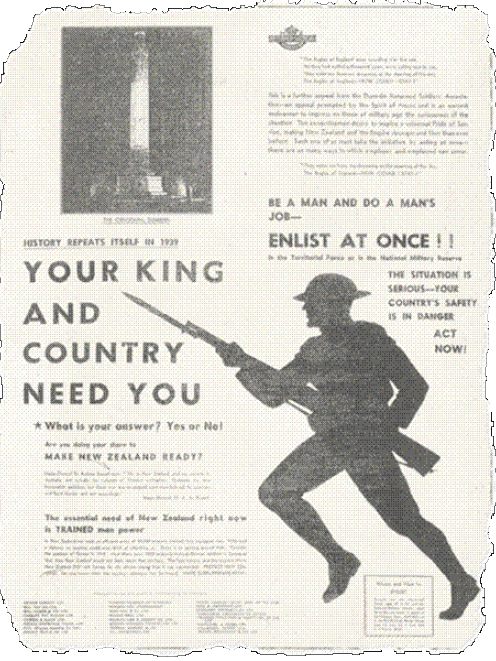
The Spokesman was unable to state exactly where hostilities were occurring.
The Warsaw correspondent of the British United Press says it has been authoritatively learned that the first German raid began at 4.30 a.m. at five unspecified points. The attacking squadrons are apparently not large, and the extent of the damage is not known.
Residents of Glenwitz reported that artillery fire was heard in the distance at 5.30 a.m. Telephone communication with Danzig is impossible. It is believed that the Poles cut the lines across the frontier.
It has been officially stated from Warsaw that Germans bombed the railway station at Czew and the towns of Rypnic and Putzk.
The Paris correspondent of the United Press of America states that the Polish Embassy announced that Germany invaded Poland at four points.
Military circles in Warsaw report that fighting began at Danzig, and there is apparently general fighting on most parts of the frontier.
Reuter's Paris correspondent reports that the Germans have begun an offensive with extreme violence on the whole Polish front.
The Reichstag met at 10 a.m. in order to hear a statement from Herr Hitler.
New York reports state that Herr Hitler, in a broadcast address from the Reichstag said that in answer "to Polish general mobilisation, which greeted his last demands," he had "decided to speak to the Poles in the same language in which they were speaking to him." He declared that Germany was prepared "to meet bomb with bomb."
September 4: London In a broadcast to the nation at 11.15 this morning, Mr Chamberlain announced that a state of war existed between Britain and Germany.
After making his historic declaration to the nation, Mr Chamberlain, who was greeted by roar after roar of cheering, as he left No.10 Downing Street, drove down Whitehall to Parliament to make his promised statement at the very opening of the session.
"When I spoke in the House the previous night," he said, "I could not have been other than aware that some parts of the House expressed doubt whether there had been hesitation, or vacillation on the part of his Majesty's Government.
"If I had been in the same position as members on that side of the House and not in possession of all information, very likely I should have felt the same. The statement I have to make this morning will show no grounds for doubt.
After consultation with the French Government, Mr Chamberlain continued, "his Majesty's Government has despatched a Note to the German Government calling on it to suspend aggressive action in Poland and to withdraw its forces. If that was not done, his Majesty's Government would have no hesitation in fulfilling its obligations to Poland, and a state of war would exist between this country and Germany. A reply by 11 a.m. was requested.
"That was our final Note," Mr Chamberlain said. "No such undertaking was received by the time stipulated. This country is now at war.
"According to agreement between the British and French Governments, the French Ambassador at Berlin is making a similar demarche, accompanied by a definite time limit.
"You are already aware of our position. As I stated yesterday and the other day, we are ready.
"This is a sad day for all of us and for no one is it a sadder day than for me. Everything I worked for, everything I hoped for, everything I believed in during my public life has crashed in ruins.
"There is but one thing left to me - with what power and strength I have, to further the cause for which we have sacrificed so much. I do not know what part I may be called on to play myself. I hope to live to see the day when Hitlerism is destroyed, and so destroy the menace to the liberty of Europe."
Speaking later in the House of Commons, Mr Winston Churchill said there was no question of a fight for Danzig or Poland, but for the whole world against Nazi aggression and terrorism. It was not a war of domination, nor was Britain fighting for material gain.
"We look forward with confidence to the day," he said, "when the rights and liberties of oppressed people are restored and shared with others."
The Berlin correspondent of the United Press of America says that Germany rejected the British ultimatum, and Herr Hitler announced that he was taking the field of battle in person.
The United States Embassy is taking over British interests in Germany.
A message from Paris states that the French ultimatum to Germany expires at 5 p.m. local time.
The Governor-General of New Zealand (Viscount Galway) has sent the following cablegram to the Secretary of State for Dominion Affairs:
"With reference to the intimation just received that a state of war exists between the United Kingdom and Germany, his Majesty's Government in New Zealand desires immediately to associate itself with his Majesty's Government in the United Kingdom in honouring its pledged word.
"It entirely concurs with the action taken, which it regards as inevitably forced upon the British Commonwealth if the cause of justice, freedom, and democracy is to endure in this world.
"The existence of a state of war with Germany has accordingly been proclaimed in New Zealand, and his Majesty's Government in the United Kingdom would take any steps that may be necessary to indicate to the German Government that his Majesty's Government in New Zealand associates itself in this matter with the action taken by his Majesty's Government in the United Kingdom.
"The New Zealand Government wishes to offer to the British Government the fullest assurance of all possible support.
"It is convinced that the step that has been taken will meet with the approval of the people of this Dominion."
